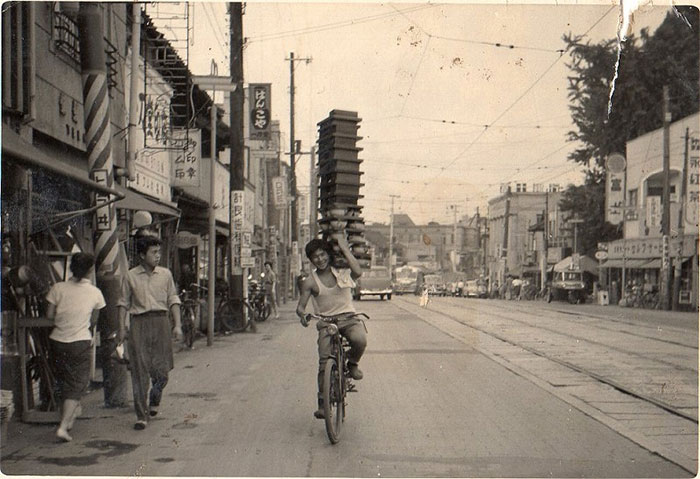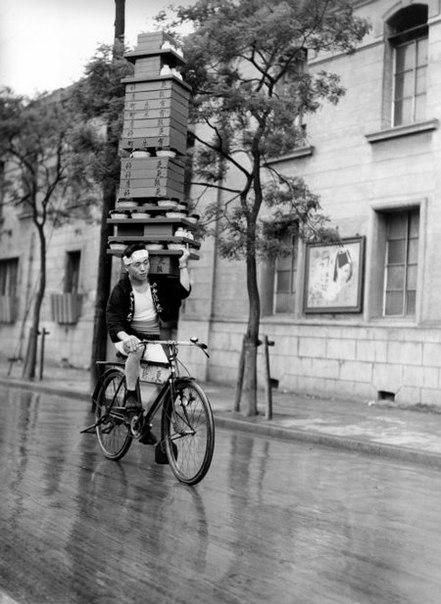Impressive photographs taken on the streets of Tokyo in the mid-20th century reveal that the Japanese had a unique food delivery method long before services like Swiggy and Zomato came into existence.
This is the image of men delivering soba noodles on bicycles, skillfully balancing with trays of noodles stacked high on their shoulders. They navigate through crowds and traffic in various neighborhoods to deliver meals to their regular customers. This service is known as demae (Japanese for “to go ahead”).

This service is known as demae.
Demae is believed to have originated early, around the mid-Edo period (17th-19th century), primarily to serve powerful and wealthy feudal lords known as Daimyo. Typically, a Daimyo would send a servant to notify the restaurant to send food to their castle. Over time, demae became increasingly popular among the general public, from students to office workers. One of the most popular dishes is cold buckwheat noodles (soba) served with dipping sauce or hot in soup. Soba is a casual dish that can be easily transported without losing its flavor or shape.
The job of delivering soba noodles is not easy; it requires skill and mastery of balance. A noodle delivery person often has to manage dozens of orders in a single trip due to a lack of manpower and the only flexible mode of transport being a bicycle. With such a high volume of orders, these men skillfully stack hundreds of bowls of noodles on top of each other (some stacks reaching up to 1.5 meters high) while controlling their bicycles with one hand and delicately balancing the noodle tower with the other—much like a circus act.

The job of delivering soba noodles is not easy.
In 1961, the Japanese government enacted new traffic laws requiring cyclists to keep both hands on the handlebars while riding—Reuters reported. Officials from the Traffic Department of the Tokyo Metropolitan Police argued that cycling with a stack of bowls on one’s shoulder was extremely dangerous, thus necessitating a ban based on road safety concerns. “However, we will not impose any additional strict restrictions, as that would result in a significant loss of customers for them,” a police representative stated.
The Reuters article concluded with an optimistic forecast that “with the commitment of the police, soba noodle delivery men will continue their work on the streets of Tokyo.” Unfortunately, we no longer witness this scene today due to the emergence of safer and more efficient food delivery services.

















































